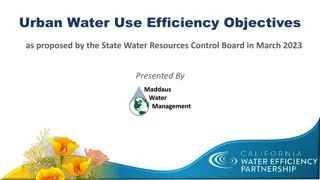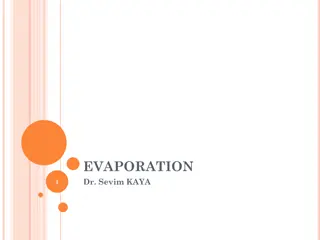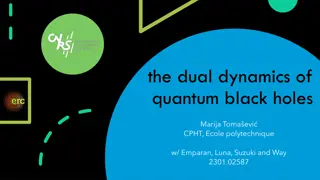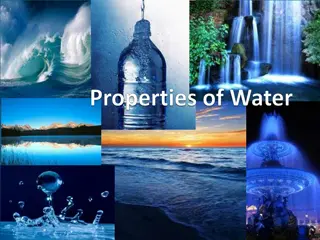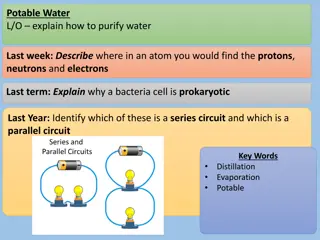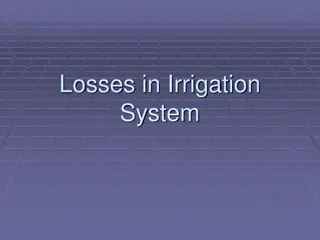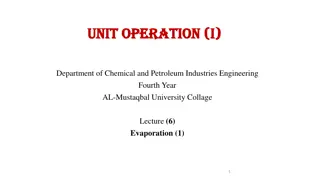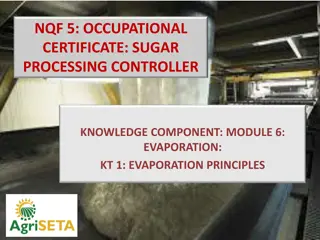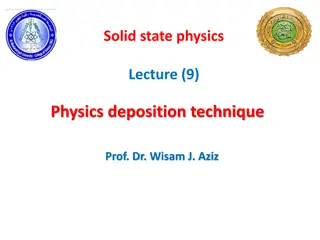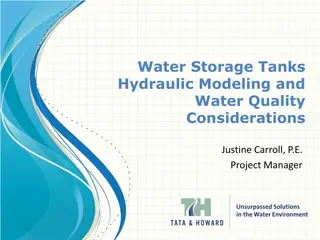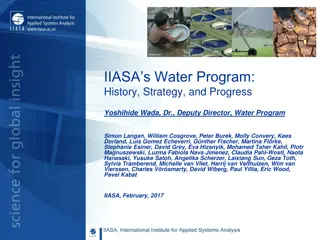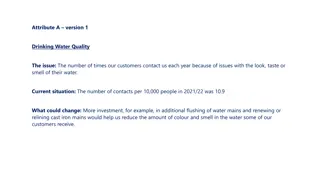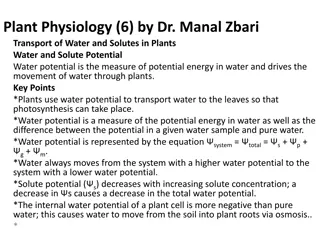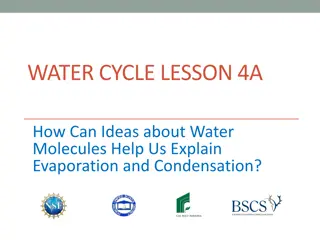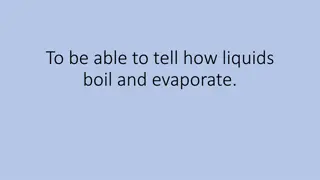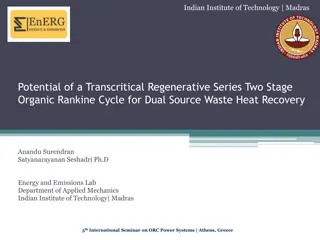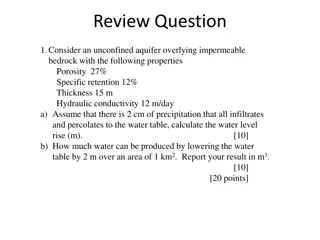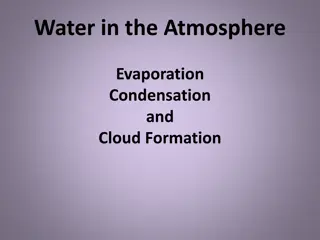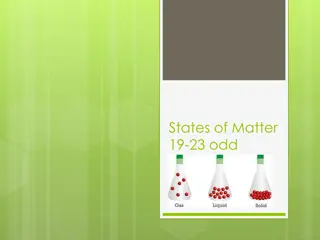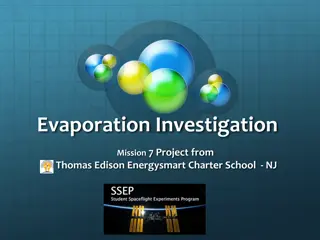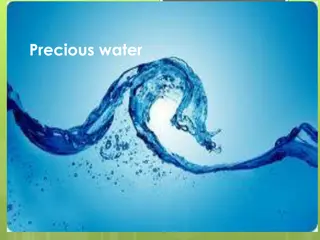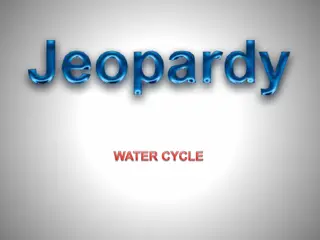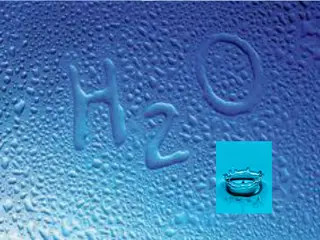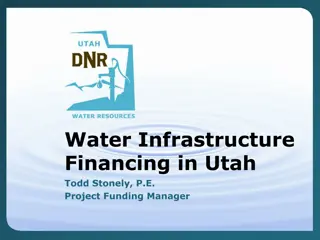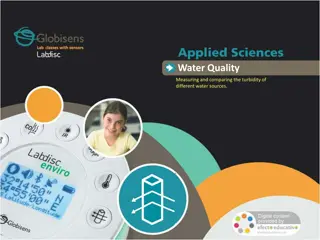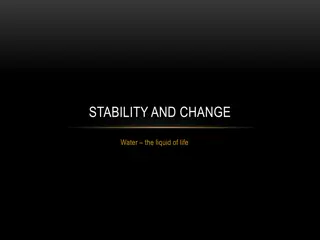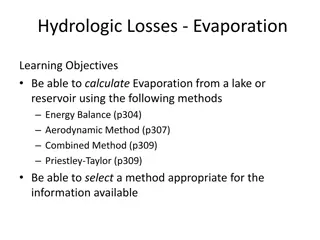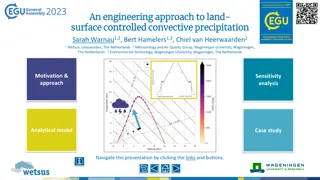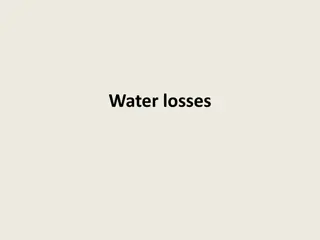Alkaline Water Ionizer Machine In India | Best Alkaline water Machine
\n \nAre you fed up with consuming bland tap water that fails to deliver the health benefits you crave? Ionia presents a solution to revolutionize your water-drinking experience with our alkaline water ionizer machine. Our cutting-edge device converts regular tap water into premium-quality, antioxid
4 views • 5 slides
Water Ionizer India | Best Water Ionizer Machine
Water Ionizer India\n\nAre you worried about the purity of your drinking water? Look no further than Ionia, the premier provider of water ionizers in India. Our state-of-the-art technology converts ordinary tap water into pristine, alkaline, and antioxidant-rich water, ensuring optimal health and vi
2 views • 5 slides
Understanding Water Management: Principles, Practices, and Soil-Water Relations
Explore the principles and practices of water management in agriculture with a focus on water availability, nutrient relationships, and losses. Discover the physical classification of water, available water defined between field capacity and wilting point, soil water potential, and the soil-plant-at
6 views • 17 slides
Understanding the Water Cycle and Its Importance in Nature
Water is essential for all life on Earth, continuously moving through different physical states in a cycle that has been occurring for over 4 billion years. The Water Cycle involves processes like evaporation, transpiration, condensation, precipitation, and collection, ensuring water is always movin
11 views • 7 slides
Water Filtration & Bottles Stay Refreshed Anywhere, Water Filtration & Bottles
Stay Refreshed Anywhere, Water Filtration & Bottles\nSurvival Supplies Australia understands the importance of staying hydrated outdoors. When you're on the move, having a clean and fresh supply of drinking water is essential. Our range, including water filter bottles and portable water filters, ens
3 views • 1 slides
State Water Resources Control Board's Urban Water Use Efficiency Objectives
The State Water Resources Control Board proposed Urban Water Use Efficiency Objectives in March 2023 to address the challenges of a hotter, drier future. The objectives include creating storage space for up to 4 million acre-feet of water, recycling and reusing at least 800,000 acre-feet of water pe
0 views • 32 slides
Understanding Evaporation in the Food Industry
Evaporation, a key process in the food industry, involves removing excess water from raw materials or processed foods to enhance preservation and reduce costs. It requires considerations such as heat transfer, temperature control, and prevention of overheating. Evaporation differs from dehydration a
0 views • 22 slides
Exploring Quantum Black Holes: Dual Dynamics and Brane Evaporation
Exploring the dual dynamics of quantum black holes reveals new perspectives on black hole evaporation. By placing black holes on branes, we can study their classical picture in higher dimensions. This approach provides insights that were previously unattainable, leading to a better understanding of
1 views • 28 slides
Investigating Different Liquids Evaporation Rates
This project aimed to determine if different liquids evaporate at the same rate. Through experiments with various liquids like tea, water, lemonade, Pepsi, and orange juice, it was observed that not all liquids evaporate at the same speed. The hypothesis that adding ingredients to water would slow d
0 views • 15 slides
The Fascinating World of Water: A Vital Element for Life
Water is essential for life on Earth, constituting about 70% of the planet's surface. With its unique chemical makeup (H2O) and properties, water exists in three states and undergoes various physical changes. Fun facts like water's unusual behavior when it freezes add to its allure. Understanding th
1 views • 15 slides
Distillation Process for Purifying Water
Distillation is a method used to purify water by separating it from impurities through evaporation and condensation. It involves heating the water until it evaporates, then cooling the vapor to collect the purified water. This process ensures the removal of harmful substances and microbes, resulting
1 views • 11 slides
Understanding Losses in Irrigation Systems: Measurement Methods and Techniques
Losses in irrigation systems, including seepage and evaporation, are major concerns impacting water conservation. This article discusses historical estimates of losses, types of losses (seepage and evaporation), methods used to measure losses (direct and indirect), and detailed information on seepag
6 views • 29 slides
Understanding Evaporation in Chemical and Petroleum Industries
Evaporation is a process of vaporizing a solvent to produce concentrated solutions used in various industries like sugar, salt, and chemical production. This article covers the principles, purposes, and types of evaporators used in the field. It explains single and multiple effect operation methods,
13 views • 11 slides
Understanding Evaporation Principles in Sugar Processing
Evaporation plays a crucial role in sugar processing by removing water from solutions to concentrate sucrose. This process involves boiling liquor, vaporizing water through heat, and crystallizing sucrose. Learn about the boundary between evaporation and sugar boiling, quantity of water to be evapor
5 views • 38 slides
Understanding the Evaporation Process in Concentrating Solutions
Evaporation is a process used to concentrate solutions by removing a volatile solvent, often water, leaving behind a liquid residue. This method differs from distillation and drying, with considerations for liquid characteristics like concentration, foaming, temperature sensitivity, scale, and mater
1 views • 37 slides
The Global Water Crisis and Transboundary Issues in Southern Africa
The global water crisis is a pressing issue affecting millions worldwide, with about 700 million people currently living below the water-stress threshold. By 2025, this number is projected to reach 3 billion. The increasing pressure on shared water resources in countries like Botswana, Namibia, and
0 views • 52 slides
Engineering Hydrology Course Overview and Great Salt Lake Evaporation Analysis
Engineering Hydrology course led by David Tarboton covers principles of hydrology, water balance concepts, and hydrologic modeling. The analysis of Great Salt Lake evaporation explores factors such as inflow, area, and precipitation to determine the average annual evaporation rate.
1 views • 18 slides
Overview of Physical Vapor Deposition (PVD) Techniques in Thin Film Deposition
Physical Vapor Deposition (PVD) includes various vacuum techniques for depositing thin films on substrates through physical means. This method involves a dry vacuum process to coat objects with different materials. PVD processes utilize methods like Mechanical, Evaporation, Sputtering, Ion plating,
0 views • 31 slides
Water Storage Tanks Hydraulic Modeling and Water Quality Considerations
This presentation by Justine Carroll, P.E., Project Manager, focuses on the hydraulic modeling and water quality considerations related to water storage tanks. It covers topics such as water age evaluation, steady state modeling, extended period simulations, pump controls, demand patterns, EPS verif
0 views • 34 slides
IIASA's Water Program: History, Strategy, and Progress
IIASA's Water Program focuses on addressing water insecurity, uncertain futures, food security, degraded water environments, and the impacts of floods and droughts. Their mission involves conducting interdisciplinary research to identify sustainable water solutions for improving human well-being thr
0 views • 10 slides
Improving Water Quality and Supply Efficiency for Yorkshire Water Customers
Yorkshire Water aims to enhance water quality and reduce interruptions in supply for its customers. By investing in maintenance and modernization of water mains, they seek to address issues related to the look, taste, and smell of tap water, as well as minimize unplanned interruptions to the water s
0 views • 30 slides
Understanding Water Potential in Plant Physiology
Water potential is a crucial concept in plant physiology, driving the movement of water within plants. It is a measure of potential energy in water and influences processes like photosynthesis. This potential is influenced by factors such as solute concentration, pressure, gravity, and matrix effect
0 views • 25 slides
Understanding Evaporation and Condensation Through Water Molecules
Exploring the water cycle and states of matter, this lesson delves into how ideas about water molecules aid in explaining evaporation and condensation. Through diagrams, simulations, and real-life scenarios, students learn about the movement and changes of water molecules. By comparing their ideas w
0 views • 12 slides
Understanding Boiling and Evaporation of Liquids
Learn about the process of boiling and evaporation of liquids, including how liquids transform into gases, the role of temperature in these changes, examples of evaporation in daily life, and fun experiments to explore drying times. Discover the three states of matter and the significance of water v
0 views • 10 slides
Advanced ORC Architectures for Waste Heat Recovery at IIT Madras
Presentation of a novel Trans-critical Regenerative Series Two-Stage Organic Rankine Cycle (TR-STORC) by researchers Anandu Surendran and Satyanarayanan Seshadri at the 5th International Seminar on ORC Power Systems in Athens. The TR-STORC layout combines supercritical evaporation in the high-pressu
0 views • 21 slides
Hydrogeology and Water Resource Management Problems
The content contains four challenging problems related to hydrogeology, evaporation, watershed hydrology, and flood control reservoir operations. It covers topics such as water table rise, evaporation rate calculation, unit hydrograph analysis, detention basin filling, and reservoir inflow routing.
0 views • 4 slides
Understanding the Hydrologic Cycle and Water in the Atmosphere
Exploring the intricate processes of evaporation, condensation, and cloud formation in the atmosphere, the hydrologic cycle's closed system, and the impact of global warming on Earth's water resources. Dive into the essential concepts of water absorption, redistribution of energy, humidity, and the
0 views • 18 slides
Understanding Mixtures and Separation Methods
A mixture is a combination of ingredients that can be separated by various methods like sieving, filtering, and evaporation. Magnets are also used to separate magnetic objects. Sieving separates solid particles by size, while filtering separates tiny particles from liquids. Evaporation is used for s
0 views • 14 slides
Understanding States of Matter: Kinetic Molecular Theory and Phase Transitions
Exploring the fundamental concepts of the states of matter, this content delves into the Kinetic Molecular Theory, explaining how matter changes from solid to liquid to gas based on particle movement and energy levels. It further discusses the nature of gases and liquids, vaporization, evaporation,
0 views • 17 slides
Microgravity Evaporation Study by Thomas Edison Energysmart Charter School
Evaporation Investigation Mission 7 Project led by students from Thomas Edison Energysmart Charter School in NJ explores the effects of microgravity on water evaporation from the human body and foods. The study aims to understand differences in evaporation in space and on Earth to assess food freshn
0 views • 9 slides
Fascinating Facts About Water and Its Importance
Water is an essential resource, with only a small percentage being fresh and usable. The water cycle, water usage statistics, and the significance of water for people, plants, and animals are highlighted. The content covers details on global water distribution, water scarcity in Australia, and daily
1 views • 9 slides
Understanding the Water Cycle: Evaporation, Condensation & Precipitation
Explore the water cycle process through evaporation, condensation, and precipitation. Learn how air temperature affects water vapor, leading to the formation of rain and snow. Discover the importance of energy in driving the water cycle and observe examples of these phenomena in nature.
0 views • 53 slides
Fascinating Facts About Water and Its Properties
Explore interesting facts about water, including its crucial role for life on Earth, the distribution of water on our planet, and the properties of the water molecule. Learn about the importance of water for human health, the chemical reactions that form water, and the different states of water. Dis
0 views • 26 slides
Water Infrastructure Financing in Utah: Overview of Revolving Loan Funds
Utah's water infrastructure financing system is managed through revolving loan funds established by the Board of Water Resources. These funds date back to 1947 and have been consistently funded from various sources to support projects related to water supply, flood control, and dam safety. The progr
0 views • 12 slides
Water Quality - Measuring Turbidity of Different Water Sources
The activity involves comparing the turbidity of various natural and artificial water sources using a Labidsc turbidity sensor. Monitoring water quality is crucial for identifying pollutants, trends, and usage patterns in water resources. Factors like human activities affecting water quality through
0 views • 18 slides
Exploring the Vital Role of Water in the Water Cycle and Ocean Currents
Water, the essence of life, plays a crucial role in our ecosystem through the water cycle. From evaporation to condensation, and precipitation, water moves between states, sustaining life and influencing weather patterns. Additionally, ocean currents drive the movement of water worldwide, impacting
0 views • 16 slides
Understanding Hydrology: The Science and Importance of Water
Hydrology is the science that studies the occurrence, circulation, and distribution of water on Earth, including its chemical properties and interaction with the environment. It involves estimating water resources, controlling floods and droughts, managing water use, and studying physical processes
0 views • 25 slides
Understanding Evaporation Methods and Implications in Hydrology
Learn how to calculate evaporation using various methods such as Energy Balance, Aerodynamic Method, Combined Method, and Priestley-Taylor. Understand the importance of evaporation and transpiration in the hydrological cycle, climate change predictions, and water availability for ecosystems and agri
0 views • 10 slides
Engineering Approach to Enhancing Water Availability in the Mediterranean Basin
Explore an innovative engineering approach to addressing water scarcity in the Mediterranean Basin through regreening degraded areas using sea water evaporation technology. This presentation discusses the impact on convective triggering, surface evaporation, and technology development for sustainabl
0 views • 24 slides
Understanding Water Losses and Evaporation in Hydrology
The hydrological equation explains the various factors contributing to water losses, including interception by vegetation, evaporation from water and soil surfaces, transpiration, evapotranspiration, infiltration into soil, and watershed leakage. Evaporation is influenced by temperature, humidity, w
0 views • 20 slides





